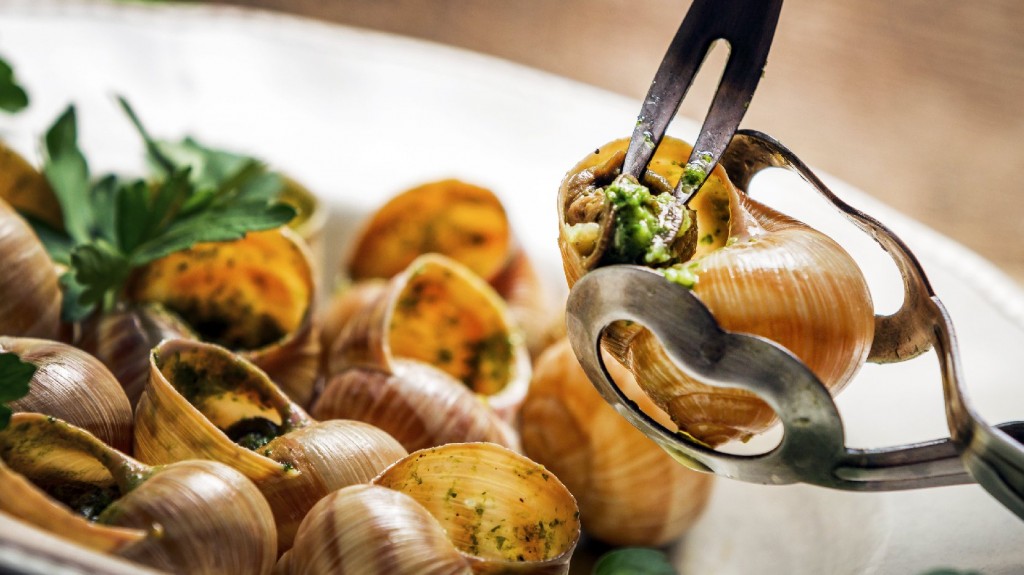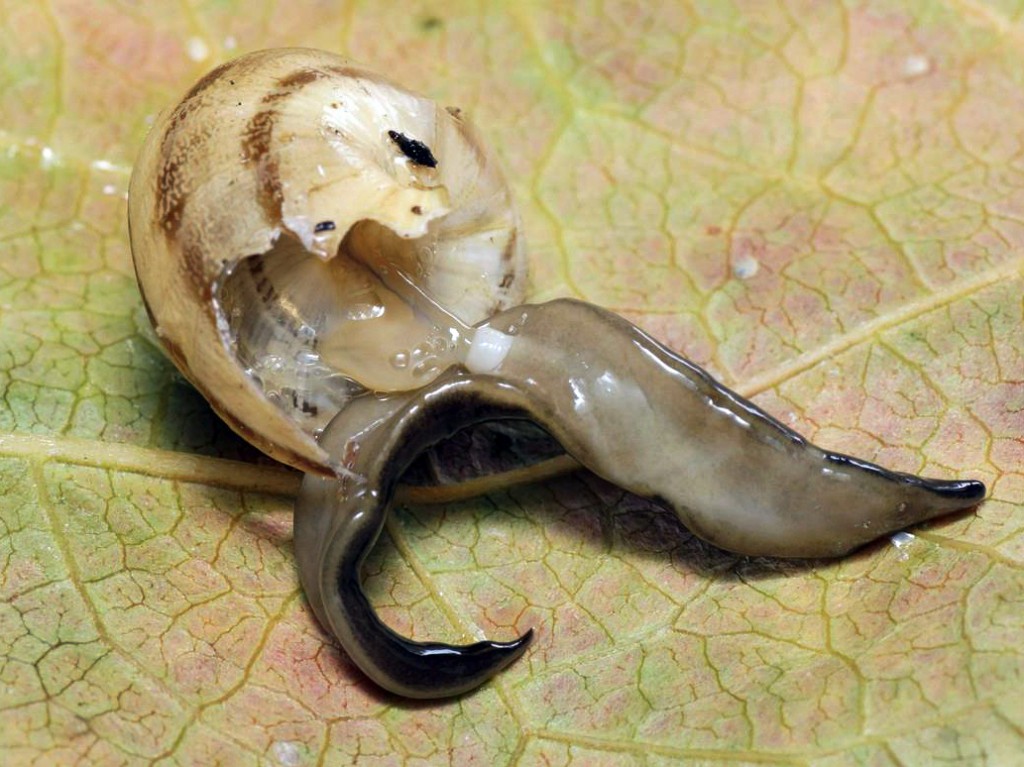The voracious interloper hails from the South Pacific, where it thrives on earthworms, insects — and its preferred prey, snails. In fact, P. manokwari is such an effective snail predator that it has been deliberately released into several countries in the Pacific to keep another invader, the giant African snail, under control. It's a strategy some researchers warn is dangerous, because P. manokwari will go after wanted, native snail species as well.
Dr. Leigh Winsor, an adjunct senior fellow at James Cook University and a member of the research team that identified the predator, believes that the flatworm hitched a ride to France on a plant shipped from the Pacific region.
"We've quarantined the botanic gardens in Caen where the flatworm was found, with a prohibition on importing and exporting potted plants to and from other gardens," he tells The Salt.
The news would seem to bode ill for France's snail farmers, whose practice is already dying out. These days, 90 percent of the snails found on the menus of French restaurants actually come from Poland or Romania, according to Yves Détraigne, a French senator.
"Among the 30,000 tonnes of snails consumed in our country each year, only 800 to 1,000 tonnes are produced by 250 to 300 French snail farmers, who guarantee consumers true quality in terms of taste and hygiene," Détraigne reportedly wrote in a letter to the French ministry of agriculture in 2013.
But all may not be lost for the snail farmers of France, says Robert Cowie, a research professor who studies snails and other creatures at the University of Hawaii. For one thing, he says, climate is on the farmers' side.
"The New Guinea flatworm doesn't do well in temperatures below 10 degrees Celsius (50 degrees Farenheit), and even in the south of France, winter temperatures drop consistently below that," he tells The Salt. "I don't see it as a major threat to France, but given the effects of global warming, the potential northward expansion of their global range is quite possible."
To date, no other P. manokwari have been sighted in France since the first cagey worm was spotted last fall. Even so, Winsor is encouraging snail farmers throughout the country to quarantine their precious escargot.
Copyright 2014 NPR.

